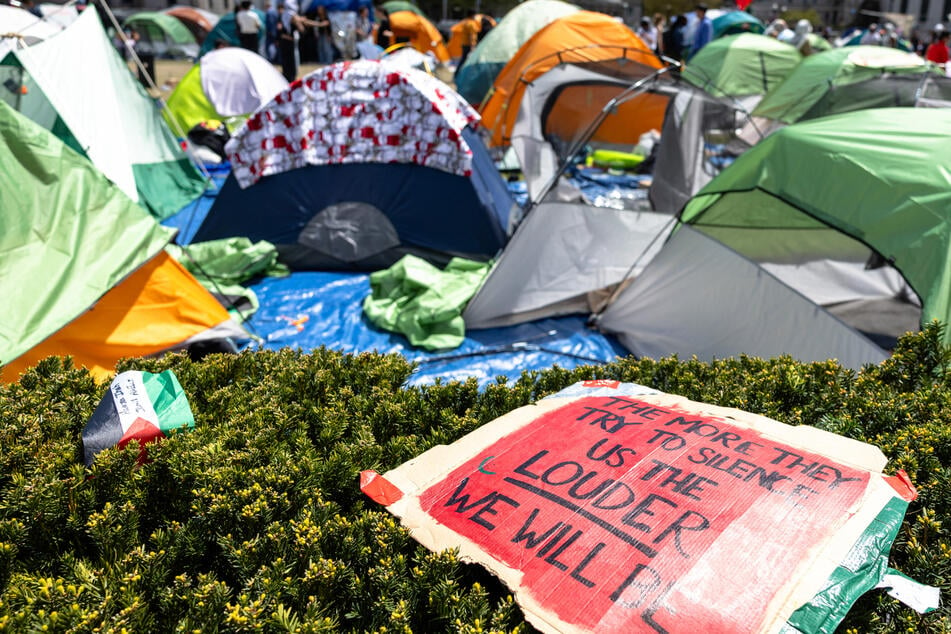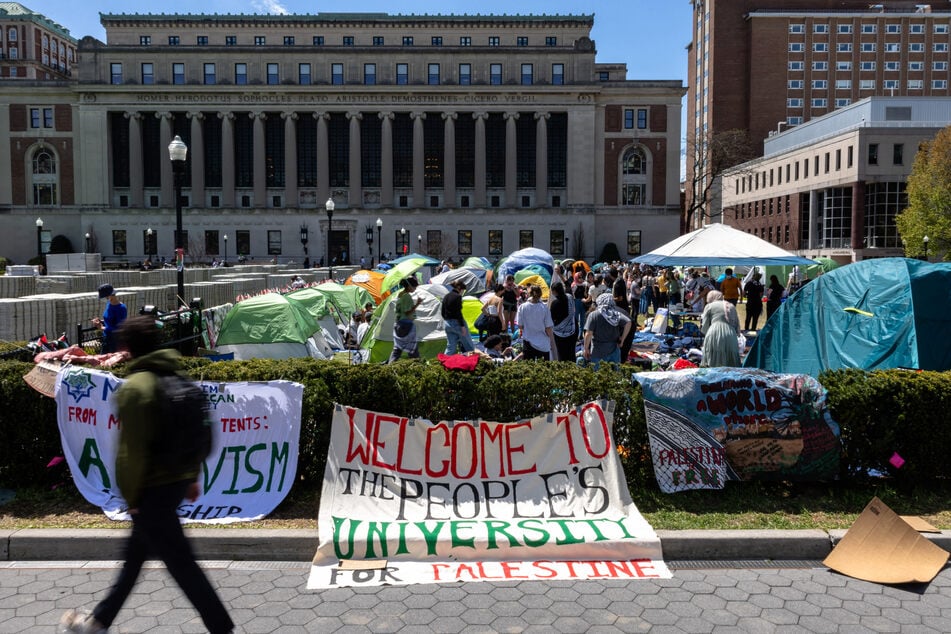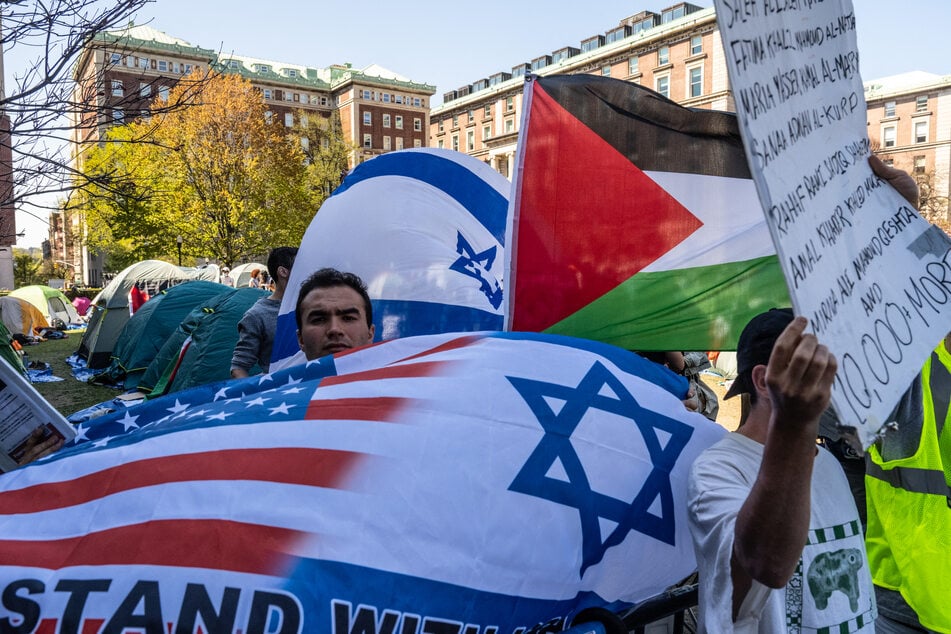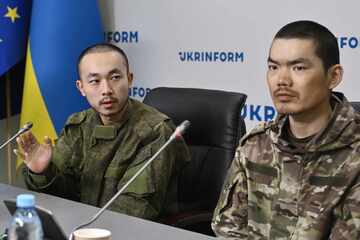Pro-Palestinian student protesters and Columbia officials find tense truce
New York, New York - An uneasy truce was in place between pro-Palestinian student demonstrators and officials at New York's Columbia University Wednesday after a deadline to forcibly disperse their protest encampment expired.

The prestigious institution is at the core of demonstrations spreading to universities across the US over the Israel-Hamas war and the ensuing humanitarian crisis in Gaza.
Protesters say they are expressing solidarity with Palestinians in Gaza, where the death toll has topped 34,000 so far, and calling on Columbia to divest from companies with ties to Israel.
The university had set a deadline of midnight Tuesday to resolve the unrest. The Columbia University Apartheid Divest (CUAD) group said school authorities had made a "disturbing threat of military or police violence."
But as more people joined the protest overnight the school extended the deadline by 48 hours early Wednesday, the students said on social media.
They agreed to the ongoing talks after the school promised not to call the police or National Guard, the CUAD said, calling the concession an "important victory."
Columbia extends deadline to disperse protests in support of Gaza

"We fear that Columbia is risking a second Jackson State or Kent State massacre," the group said in the social media post, referring to two 1970 incidents in which universities called the National Guard on student protesters, with fatal consequences.
In exchange for extending the deadline, students would abide by fire safety regulations within the encampment, prohibit discriminatory language, restrict non-Columbia attendees, and begin dismantling some tents, a university spokesperson told the student newspaper, the Columbia Spectator.
Students occupying the encampment, which was erected last week, have hosted speakers, music performances, study groups, Islamic prayers, and seder meals for the Jewish holiday of Passover, which began Monday.
But pro-Israel supporters, and others worried about campus safety, have pointed to antisemitic incidents and argued that campuses are encouraging intimidation and hate speech.
Protesters – including a number of Jewish students – say they've disavowed instances of antisemitism and are there to support Palestinians.
Republican House Speaker Mike Johnson, who planned to meet with pro-Israel Jewish students at Columbia Wednesday, called the protests "madness."
"What we're seeing on these college campuses across the country is disgusting and unacceptable," he told conservative radio host Hugh Hewitt.
Arrests continue at pro-Palestine protests on college campuses

Israeli defense minister Yoav Gallant also weighed in on social media, saying the protests are "not only antisemitic, but also inciting terrorism."
"Act now to defend Jewish youth," he told university faculty.
Tensions reached their peak Thursday when more than 100 people were arrested after the university president, Minouche Shafik, called in the police.
Given the uneasy mood and disruption to university campus life, some classes are being held online for the rest of the semester, which ends April 29.
Students have also launched protests at several other schools, including Yale, MIT, UC Berkeley, the University of Michigan, the University of Texas at Austin, Brown University, and elsewhere.
Social media images showed an encampment taking shape at Harvard University near Boston Wednesday afternoon.
Classes were moved online, and other on-campus activities were canceled at California State Polytechnic University, Humboldt after protesters barricaded themselves in a campus building Tuesday.
More than 130 people were arrested at a pro-Palestinian protest at New York University Monday night.
And police at the University of Minnesota reportedly arrested nine people at a pro-Palestinian encampment Tuesday.
Cover photo: MICHAEL M. SANTIAGO / GETTY IMAGES NORTH AMERICA / GETTY IMAGES VIA AFP

